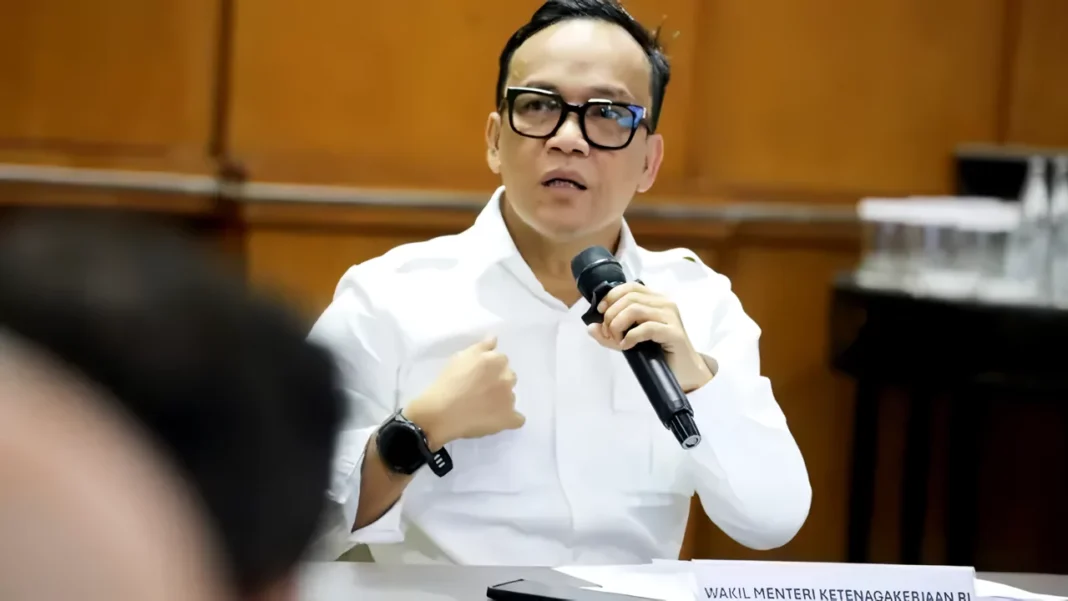Noel OTT KPK Case —The late-night knock on the door of Deputy Minister of Manpower Immanuel “Noel” Ebenezer this week was more than a routine police procedure. It was a moment that laid bare the raw nerves of Indonesian power politics. The Operation Catch Red-Handed (Operasi Tangkap Tangan or OTT) by the Corruption Eradication Commission (KPK) on August 20, 2025, targeting a vocal anti-oligarchy crusader within the government itself, has sent seismic waves through the capital, prompting a single, pervasive question: is this a legitimate anti-corruption drive, or a brilliantly staged political framing?
The arrest of Noel, a ’98-era activist known for his ascetic lifestyle and fierce rhetoric against the shadowy networks of capital and power, seems a paradox. The charges—extortion related to the certification of Workplace Health and Safety (K3)—feel, to many observers, incongruous with the man himself.
The Evidence: A Narrative of Opulence Built on Shaky Ground
In the immediate aftermath of the OTT, the KPK’s narrative began not with a press conference, but with carefully curated images: a fleet of seized luxury vehicles, including high-end Ducati motorcycles. The intended message to the public was clear: a corrupt official living a lavish double life.
However, upon closer inspection, the foundation of this narrative appears to crumble. Sources close to the investigation, along with sharp-eyed public scrutiny, note critical flaws:
-
The vehicles are not registered under Noel’s name.
-
They are alleged to belong to other individuals previously arrested in unrelated operations.
-
The KPK has yet to produce crucial documentation, such as STNK (vehicle registration) or BPKB (vehicle title), to substantiate their implied claim of ownership.
Without this fundamental proof, the spectacle risks being perceived not as evidence, but as orchestrated theater designed to paint a picture of guilt through association rather than fact.
The Legal Chasm: Where is the Actual Crime?
The KPK’s case hinges on the allegation of extortion. Yet, legal experts are already circling a fundamental weakness: pure extortion is a general crime, falling under the purview of the national police, not the KPK. The anti-corruption commission’s mandate is to investigate crimes that result in a financial loss to the state or involve bribery and gratuities.
The elements of extortion require a demonstrable threat of violence or coercion to force someone to hand over money or goods. Noel’s reputation is that of a hardliner on regulatory compliance—pressuring companies to adhere to K3 standards, crackdowns on illegal foreign workers, and enforcing certification rules. This is the action of a strict regulator, not an extortionist. There is, as yet, no evidence he demanded personal payment.
A more plausible theory emerging from ministry insiders suggests a different scenario: that rogue civil servants (ASN), allegedly acting in Noel’s name, may have been soliciting bribes from companies. If true, this points to misconduct within the bureaucracy, not necessarily at the deputy ministerial level. The fact that an ASN reportedly arrived at Noel’s home just before the KPK raid adds a layer of intrigue to this theory.
The Overwhelming Stench of Politics
To dismiss the Noel OTT KPK case as purely legal is to ignore the potent political chemistry at play.
Noel is no ordinary official. He is a symbol:
-
A ’98 reformasi activist who maintains a modest lifestyle.
-
A vocal critic of oil and tin mafias and political demonstrations he views as hijacked by special interests.
-
A staunch loyalist within the new Prabowo Subianto administration.
His arrest comes at a critically symbolic moment. President Prabowo has recently achieved what once seemed impossible: full-throated support from the PDI-Perjuangan and a near-unanimous parliamentary consensus, evidenced by the release of political figures like Tom Lembong and Mas Hasto.
In this new, unsettlingly unified political landscape, who benefits from taking down a figure like Noel? The theory gaining traction is that this is a message from entrenched oligarchic forces—a demonstration that their power operates above and beyond the formal structures of government and parliament. Noel, in this reading, is not a criminal; he is a martyr, sacrificed to show that the more things change, the more they stay the same.
The Official Response: A Test of Institutional Integrity
The response from former officials like Mahfud MD, who praised the KPK’s independence, provides a counter-narrative. It suggests that the KPK is finally free to hunt without fear or favor, even within the government it serves, and that President Prabowo is willing to clean house, even at his own doorstep.
But the court of public opinion is less convinced. The KPK now faces a monumental test of its credibility. Its upcoming press conference must provide irrefutable, legally sound evidence of a specific corruption crime—gratification, bribery, or clear state financial loss—directly linked to Noel. Not vehicles owned by others, not the alleged actions of underlings, but a direct, prosecutable link.
If it cannot, the Noel OTT KPK case will be cemented in public perception not as a victory for justice, but as a masterclass in political manipulation, revealing that the true corruption in Jakarta is not just financial, but existential. The world is watching to see if Indonesia’s institutions will hold, or if they will be wielded as weapons in a shadow war for the soul of the nation.
By Giostanovlatto





